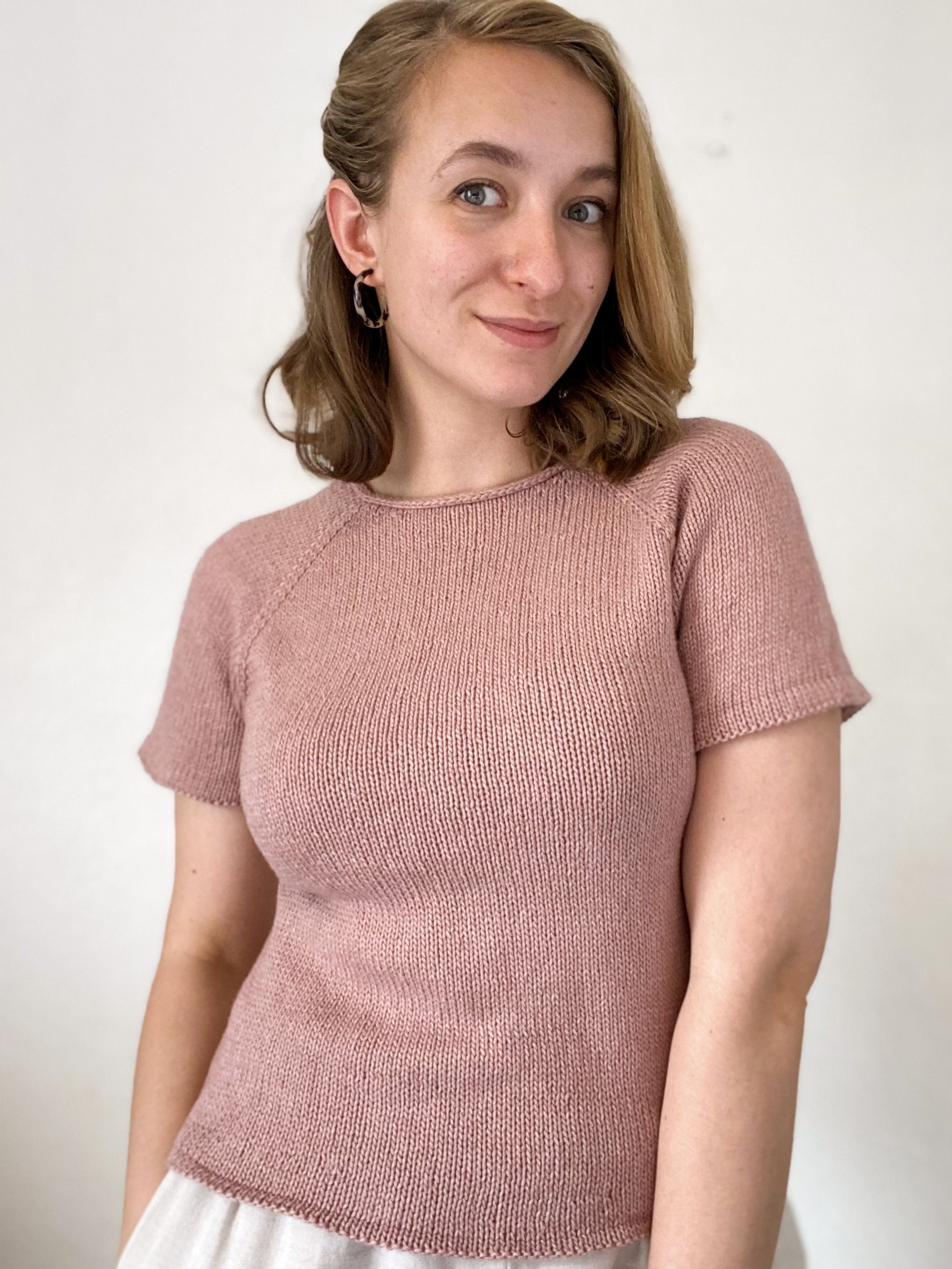Aosta Cami
The Aosta Cami is a top-down camisole worked in the round. The cotton yarn shows off the beautiful Andalusian stitch, which also makes the top nice and lightweight so, when the weather finally warms up, it will be perfect! It’s a fairly beginner-friendly design, using techniques like leaning increases to shape the neckline, but it also uses some more complicated techniques that will challenge beginners a little bit more. I have suggested easier alternatives to these techniques, so there are options for knitters of all abilities.
Please note that this is a pdf digital download and not a physical knitting pattern.
The Aosta Cami is a top-down camisole worked in the round. The cotton yarn shows off the beautiful Andalusian stitch, which also makes the top nice and lightweight so, when the weather finally warms up, it will be perfect! It’s a fairly beginner-friendly design, using techniques like leaning increases to shape the neckline, but it also uses some more complicated techniques that will challenge beginners a little bit more. I have suggested easier alternatives to these techniques, so there are options for knitters of all abilities.
Please note that this is a pdf digital download and not a physical knitting pattern.
The Aosta Cami is a top-down camisole worked in the round. The cotton yarn shows off the beautiful Andalusian stitch, which also makes the top nice and lightweight so, when the weather finally warms up, it will be perfect! It’s a fairly beginner-friendly design, using techniques like leaning increases to shape the neckline, but it also uses some more complicated techniques that will challenge beginners a little bit more. I have suggested easier alternatives to these techniques, so there are options for knitters of all abilities.
Please note that this is a pdf digital download and not a physical knitting pattern.
The Aosta Cami is now also available in French and Spanish as part of this digital download!
Construction
You start the Aosta Cami by making 4 triangles to shape the neckline. You then join the triangles to form front and back panels, which are then joined together in the round to make the body. This sounds more complicated than it is; each step is explained in the pattern below. Being a top-down knit, you can exercise quite a lot of control over the fit of this top. You easily adjust it to your preferred length and adjust how the Cami sits on you by altering the length of the straps.
A word on ease and getting the best fit for you
As written, the Aosta Cami has between 5-10 cm of negative ease. This means that the top is 5-10 cm smaller in circumference than your actual body measurements. I know this sounds scary but it’s important to remember that if you are using cotton yarn as advised that this type of fabric is quite stretchy and grows with wear. The negative ease counteracts this.
It’s also worth noting that I wrote this pattern with ‘top-heavy’ figures in mind and so the design is based around the wearer’s chest circumference. If, like me, your chest measurement is large relative to your waist and hip measurements, you may wish to go down a size for the best possible fit. My chest measurement is 92cm and I made Size B as I wanted a closer fitting garment. However, if the difference between your chest-waist-hip measurements is less dramatic, I would advise making the ‘correct’ size as labelled in the Sizing section below.
Sizing
The Aosta Cami is available in sizes (A) B (C) D (E) F, (G) H (I)* J* (K)* L* (M)*, with 5cm intervals between each size. The sizes correspond to chest measurements as follows:
A = 80-85cm
B = 85-90cm
C = 90-95cm
D = 95-100cm
E = 100-105cm
F = 105-110cm
G = 110-115cm
H = 115-120cm
I = 120-125cm*
J = 125-130cm*
K = 130-135cm*
L = 135-140cm*
M = 140-145cm*
This is explained in greater detail in the pattern pdf.
* As of publication, these sizes have not been tested due to unavailability of testers. If you are making a Cami in one of these sizes, please email me the.knit.purl.girl2020@gmail.com if you encounter any issues.
Materials
You will need approximately (2) 2 (2) 2-3 (3), 3 (3) 3-4 (3-4) 4 (4) skeins of We Are Knitters Pima Cotton (212m/100g skein).
Good alternative yarns include The Yarn Lovers’ Egyptian Cotton or two stands of a fingering-weight yarn like Knitting For Olive Pure Silk, held double. Look for yarns suitable for 5mm needles.
You will also need some 5mm and 4mm circular knitting needles. I used an 80cm cord throughout, but you may prefer a 60cm or 100cm cord, depending on the size you intend to make. I also highly recommend using a 3mm set of DPKNs to make the i-cord straps for a neater finish. You will also need a crochet hook to work the provisional cast on, some stitch markers, and a darning needle to weave in your ends.
Tension
10×10 cm/4×4” = 17 stitches over 23 rows in Andalusian stitch on 5mm needles
Prepare a 10×10 cm/4×4 inch swatch in pattern before casting on.













